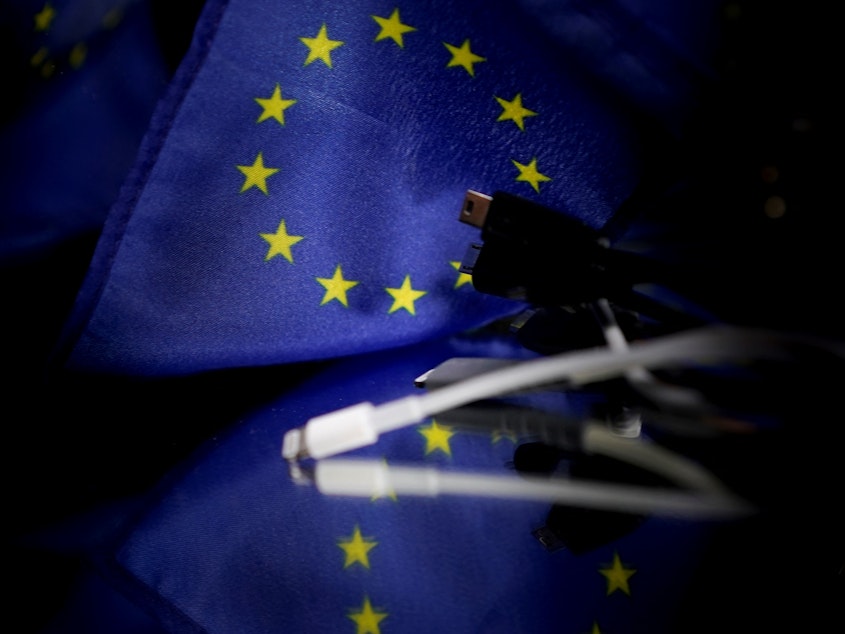One charger for them all: The European Union sets a new standard for mobile devices

Those in the European Union won't have to spend much more time rummaging around for a charger.
Cell phones and handheld electronic devices in the European Union will now be required to have a USB-C charging port, according to an agreement reached Tuesday by the European Commission, the E.U.'s executive branch.
As of 2024, tablets, digital cameras, video game consoles, headphones, portable speakers, e-readers, portable navigation systems, keyboards, mice and earbuds will need to be equipped with the port.
Laptop manufacturers have until 2026 to implement the universal charging port in their products.
"No more bundles of different chargers in our drawers," Margrethe Vestager, executive vice president for A Europe Fit for the Digital Age, said in a statement.
Sponsored
"One common charger is a real benefit to us as consumers."
The E.U. hopes a universal charger will reduce carbon dioxide emissions and prevent waste, while also eliminating the costs of buying multiple chargers for different devices.
"The deal we struck this morning will bring around 250 million euros of savings to consumers annually," Thierry Breton, an E.U. commissioner for the bloc's Internal Market, said in a statement.
Chargers that were either unused or disposed contribute to roughly 11,000 tons of e-waste each year, according to the commission.
The universal charging requirement could impact major tech companies such as Apple, which has a unique "Lightning" connector for iPhones, iPads and other mobile products.
Sponsored
Apple did not immediately respond to a request for comment, but the company has previously spoken against the move.
"We remain concerned that strict regulation mandating just one type of connector stifles innovation rather than encouraging it, which in turn will harm consumers in Europe and around the world," a company spokesperson said in a statement last September. [Copyright 2022 NPR]



